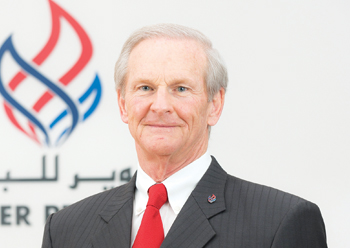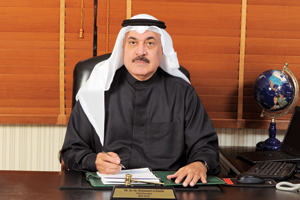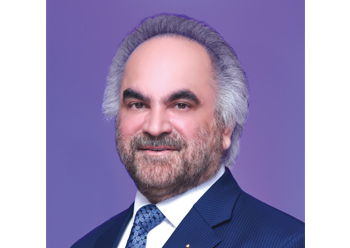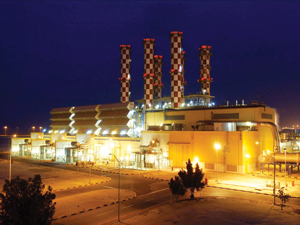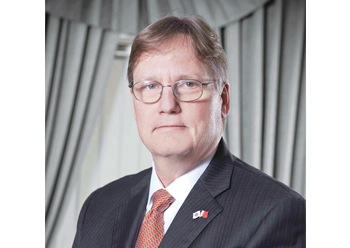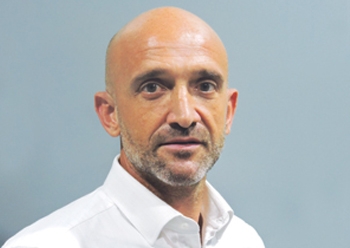
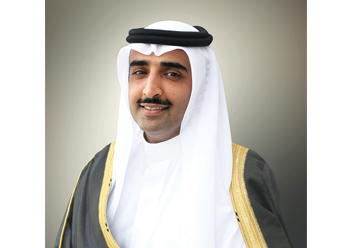 Shaikh Mohammed ... energy sector to bring in revenues
Shaikh Mohammed ... energy sector to bring in revenues
Three major projects in the oil and gas industry are expected to generate ‘substantial’ additional revenue for Bahrain, according to Shaikh Mohammed bin Khalifa bin Ahmed Al Khalifa, Minister of Oil and Chairman of Nogaholding.
Nogaholding is in the construction phase of the Banagas expansion project in the gas processing sector. Once completed, this project will generate substantial additional revenues from increased production of natural gas liquids and, importantly, will provide significantly increased supply of natural gas to the industrial network in Bahrain.
Nogaholding will also soon complete the new crude oil pipeline between Abqaiq in Saudi Arabia and Bahrain. This will be a critical piece of infrastructure to support increased refining capacity at Bapco, and reflects the close ties between Bahrain and Saudi Arabia, as well as the close commercial relationship between Bapco and Saudi Aramco, a relationship that has spanned over 70 years.
'For my own part, I am perhaps most excited about the opportunities we see in the upstream part of our portfolio across both oil and gas, with Tatweer now under full control of Nogaholding,' he says.
The flagship projects -- the Bapco Modernisation Programme, the Banagas expansion project, and new crude oil pipeline between Abqaiq and Bahrain are making ‘strong progress’, says Shaikh Mohammed.
These projects are forecast to generate substantial additional revenues from increased refining capacity and enhanced product slate at Bapco, enhanced liquid petroleum gas capture and expanded natural gas production for the kingdom.
'Our investment in the new crude pipeline reflects the unbreakable ties between the kingdoms of Bahrain and Saudi Arabia, as well as the close commercial relationship between Bapco and Saudi Aramco, a relationship that has spanned over 70 years,' he says.
A consortium of France’s TechnipFMC, South Korea’s Samsung Engineering and Spain’s Tecnicas Reunidas was announced on December 4 as the winner of the $4.2 billion lump sum turnkey engineering, procurement, construction and commissioning (EPCC) contract to expand Bapco’s 79-year-old refinery at Sitra, in the kingdom’s north-east. The contract will see capacity increase from 267,000 bpd to 360,000 bpd and units will be added enabling the production of cleaner, lighter, higher-value fuels, predominantly for export.
Four teams had submitted bids for the deal in December last year, with the team led by TechnipFMC which also carried out the front-end engineering and design (Feed) contract reported to have offered the lowest price.
Facilities to be added under the Bapco Modernisation Programme (BMP) include residue hydrocracking, hydrocracking, hydro-desulphurisation, crude and vacuum distillation, hydrogen production, hydrogen and sulphur recovery, tail gas treatment, sour water stripping, amine recovery, bulk acid gas removal and amine recovery units and facilities for the recovery, solidification and handling of sulphur. Completion is scheduled for 2022.
 |
|
Bapco ... modernisation in progress |
The scheme aims to add value to heavy bottom of the barrel components of the crude, to broaden the product slate, and to increase energy efficiency. Some of the refinery’s units date back to the 1930s.
The project will also include a delayed coker unit, says the minister. The unit is intended to produce coke from heavy refining residues (tar, fuel oil), which is raw material in electrodes production for aluminium industry. The coke produced can be used by the nearby Aluminium Bahrain’s (Alba) calcine unit. Alba will be able to use all the coke produced by the delayed coker, he said.
'We also have new technologies coming from technology providers including converting LC-Fining technology to LC-MAX technology or Hybrid Slurry,' Shaikh Mohammed said. LC-Fining efficiently hydrocracks residuum to high-quality fuel oils and transportation fuels.
LC-Fining is ebullating bed residue hydrocracking process, which provides high conversion of residues selectively to liquid products and high removal of metals, sulphur and CCR from difficult feedstocks. LC-Fining provides this superior performance with ease, safety and reliability at the best economics.
'We also have the option of the Fluid Catalytic Cracking (FCC) and Resid FCC (RFCC) processes which have long been trusted workhorses in the refining industry,' he says.
Bapco has to look at all these technologies to see which will deliver the optimum value, he says.
In view of the International Maritime Organisation’s decision to implement the 0.50 per cent sulphur limit in 2020, refineries are planning changes in their production profiles in response to the impact of regulation. Therefore it is important to focus on capital investment and tailor one’s products to meet the new environmental standards, the minister says.
'Refineries sometimes go through severe cycles. There are times when the margins are good, but there are times when we lost money refining. The last few years, despite the low oil prices, we enjoyed good margins, but it doesn’t mean it will be the case all the time. We don’t want to go back to that era where we lost money refining. To avoid it we should focus on capital investment and technology,' he says.
Talking about technology, catalysts have emerged as some sort of game-changer in the refining industry. The technology has come to the region and Bapco’s new hydrocracking units will see more of its use, he says.
The upgrade spent many years on the drawing board as debates over scope and financial concerns dragged out the decision-making process.
However, execution accelerated in 2015, when Australia’s WorleyParsons was awarded the project management consultancy (PMC) contract. Perhaps more importantly, the main engineering, procurement and construction (EPC) packages were also apportioned on a similarly long-awaited scheme to replace and expand from 230,000 bpd to 350,000 bpd the pipeline supplying the refinery with Saudi Arabian crude feedstock from the Abqaiq processing hub in the Eastern Province.
'More than 50 per cent of the construction and modernisation of the pipeline has been completed and the pipeline is now being buried in the south of Bahrain. The project, to be completed this year, is moving steadily according to the plan and budget,' he says.
Shaikh Mohammed says the oil sector in the kingdom is currently working out a clear strategy for involving the private sector in the implementation and management of the oil projects, citing the case of the Bahrain LNG Import Terminal, which is being developed in partnership with the private sector (with a consortium of Teekay, GIC and Samsung).
He also says that the third gas plant, owned by Bahrain National Gas Company (expansion), will start operating by the last quarter of this year.
The minister stresses the need for more investments and advanced technology and engineering solutions to the various challenges facing the refining industry. As a result of population growth and increased demand on energy, there was need for further effort in order to strengthen the cooperation between the refining industry and technology.
This represents a challenge facing technology companies today to devise creative solutions that help refining companies to improve financial returns and enhance operational efficiency. It was also vital to take full advantage of technological solutions available to rationalise operational expenditure in this sector, he says.
A roughly $1 trillion decline in upstream investment since the 2015 drop in oil prices has set up a likely global supply crunch and relatively dramatic increase in prices by 2021, the minister says.
'I think the era of easy oil is behind us,' he says adding: 'The system could be shocked again.'
He says for Middle East producers, the growth of US shale oil 'came out of nowhere,' and has already caused a dynamic shift in the market.
While he credits advancements in technology for the growth in US output, he says the US Federal Reserve’s quantitative easing programme flooded the market with cheap credit, allowing production to ramp up without restrictions.
'This was an industry that would give you yield and so a lot of money went into it, without worrying too much about the economics,' he says. 'This created a very fast ramp up of production, created a global glut in supply and the 2015 crash of the oil price.'
But that increase in credit is now being countered by an equally severe drop in investment, setting up a looming supply crunch.
'If things don’t change quick for the better and bring back investment, which is the litmus test, you want investment back, there is a potential supply challenge that’s coming in the future,' he says. 'That’s what markets don’t see.'
The minister says the Opec supply-cut agreement, and the extension of that agreement, are likely to boost upstream investments.
Opec members 'want markets to be balanced enough to trigger investments back,' he says.
Bahrain’s oil industry dates back to 1932, when Standard Oil made an initial discovery on the island nation in the Arabian Gulf, but produces only a modest amount of oil, which keeps it out of Opec, he says.
The country has two oil fields: the Bahrain Field, which produces around 50,500 bpd of oil, according to the US Energy Information Administration; and the offshore Abu Safah field, which is jointly shared with Saudi Arabia and produces about 300,000 bpd, according to EIA.
Shaikh Mohammed says Bahrain is working with US service companies, including Halliburton and Schlumberger, on enhanced oil recovery work in the Bahrain field and is in the development stages of some new exploration work offshore.
Bahrain is in talks with service companies to develop a new tight gas resource, but is also building an LNG import facility which could be opened by the end of this year. The project will have a capacity of 0.8 bcfd. The country currently consumes about 1.5 bcfd, all sourced domestically, he says.
'One of our responsibilities is to make sure we diversify the sources of gas,' he says.
He says Bahrain is looking to procure LNG from various sources, including the US.
'I think the good thing about an LNG terminal is that you’re open to what the world market can offer,' he says.
Meanwhile, nogaholding, the investment arm of Bahrain’s National Oil and Gas Authority (Noga), hosted an event to mark the debut issuance of $1billion senior unsecured notes, due in 2027 under the Global Medium-Term Note Programme.
The issuance was rated BB+ by Fitch Ratings Limited, the same rating as is assigned by that agency to Bahrain.
Shaikh Mohammed says: 'It gives us great pleasure to celebrate the issuance of the first global bond issue at this closing dinner, with all our partners in attendance, with special thanks to our joint global coordinators JP Morgan and Citi Group. This success has supported nogaholding in its central role in the execution of the Kingdom of Bahrain’s policy in the oil and gas sector and stewardship of the Kingdom of Bahrain’s investment in oil, gas and petrochemical assets.
'The debt raised from this, and future issuances, will be an important tool in enabling nogaholding to deliver on its stated objectives of developing commercially attractive projects across the oil and gas value chain, to the benefit of the people of the Kingdom of Bahrain,' he adds.
The minister extended his sincere thanks to the investment team at nogaholding for bringing this strategic project to close, as well as to partners and banks for their key roles in making this inaugural global bond issuance an unprecedented success and positioning the country as a key international player.










































































